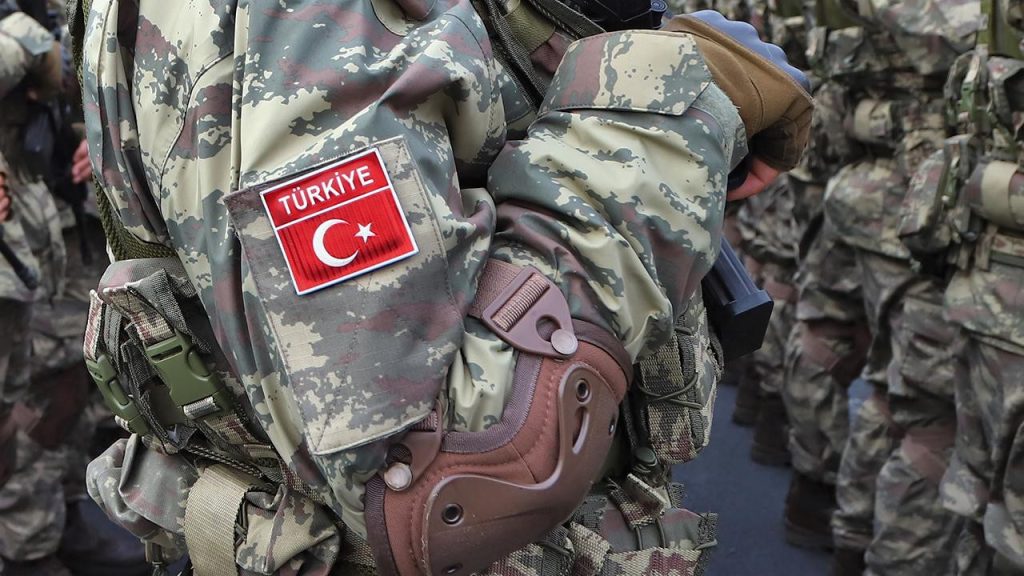Turkey, recognized for possessing the second largest army in NATO, is contemplating its involvement in a potential peacekeeping mission in Ukraine, according to a source from the Turkish Defense Ministry. Discussions are ongoing regarding the nation’s contribution to ensure stability and peace in the region, aligning with international military powers. This initiative arises amid an evolving situation in Ukraine, as various global powers negotiate potential peace terms while considering on-ground security guarantees.
| Article Subheadings |
|---|
| 1) Turkey’s Potential Role in Peacekeeping |
| 2) Background and Context of the Discussions |
| 3) Responses from Key Global Players |
| 4) The Mechanisms of Possible Deployment |
| 5) Turkey’s Diplomatic Stance |
Turkey’s Potential Role in Peacekeeping
Turkey is assessing its potential contribution to a peacekeeping mission in Ukraine, indicating a desire to support regional stability. The Defense Ministry source emphasized that this consideration is contingent upon mutual assessments and deemed necessity by all parties involved. The discussions remain largely conceptual at this stage, without any firm decisions or actions being established. This strategic contemplation aligns with Turkey’s notable military stature within NATO, being the second largest army after the U.S. and positioning itself as a pivotal player in potential peacekeeping endeavors.
Background and Context of the Discussions
The backdrop to these discussions involves escalating tensions in Ukraine following Russia’s military operations, creating a dire need for a ceasefire and peace agreement. According to Turkish media, President Recep Tayyip Erdoğan has had significant dialogues with Ukrainian President Volodymyr Zelenskiy and Russian Foreign Minister Sergey Lavrov to explore potential deployment frameworks. The meetings indicated a delicate balancing act by Turkey, which has maintained cordial relationships with both sides despite historical rivalries. This strategic position allows Turkey to act as a mediator and observer, potentially facilitating negotiations toward a ceasefire.
Responses from Key Global Players
Europe’s primary military powers, notably Britain and France, are also deliberating on deploying troops to oversee a ceasefire in Ukraine. This move comes in light of Ukraine’s assertion that a robust international presence is required to secure any peace agreement, ensuring that the terms are upheld. However, the United States has explicitly stated that it will not deploy American troops to Ukraine, a factor that influences the strategic and political calculus for Turkey’s possible involvement. The dynamics among these global players highlight the complexity of military and diplomatic interventions, as countries weigh their commitments against the volatile backdrop of the Ukraine conflict.
The Mechanisms of Possible Deployment
If Turkey decides to proceed with troop deployment, the source outlined that a key prerequisite would be a formal ceasefire declaration between Ukraine and Russia. Initial deployments, according to sources, would likely involve non-combat units tasked with monitoring the ceasefire rather than engaging in active military operations. This approach seeks to establish a buffer and build trust between conflicting parties while providing a foundation for further peacebuilding efforts. The necessity for a structured plan prior to any potential deployment is crucial, as it embodies Turkey’s aimed role as a stabilizing force in the crisis.
Turkey’s Diplomatic Stance
Turkey’s foreign policy has reflected an effort to navigate the multifaceted relationships it maintains with both Russia and Ukraine. Notably, while Turkey has not participated in Western sanctions against Russia, it has exhibited support for Ukraine through arms sales and by facilitating discussions between the two nations. This diplomatic balancing act underscores Turkey’s objective to remain a central player not only in military interactions but also in fostering dialogue aimed at conflict resolution. Reports suggest that Turkey’s mediation has yielded positive outcomes, such as facilitating agreements that enabled the export of Ukrainian grain, showcasing its capability to play a constructive role in regional affairs.
| No. | Key Points |
|---|---|
| 1 | Turkey is considering a role in a potential peacekeeping mission in Ukraine. |
| 2 | Discussions are still conceptual, without definitive plans or deployments. |
| 3 | Troop deployments, if any, would rely on a declared ceasefire between Ukraine and Russia. |
| 4 | Turkey maintains relationships with both Russia and Ukraine, positioning itself as a mediator. |
| 5 | European powers like Britain and France are also considering troop deployments for monitoring ceasefires. |
Summary
In summary, Turkey’s potential involvement in a peacekeeping mission in Ukraine highlights a critical juncture for regional stability and diplomatic relationships. As discussions evolve among global powers about how best to secure peace in Ukraine, Turkey’s mediating role becomes increasingly significant. The outcome of these deliberations could influence the balance of power in the region and support broader efforts aimed at establishing lasting peace following prolonged conflict.
Frequently Asked Questions
Question: What is Turkey’s potential role in the peacekeeping mission for Ukraine?
Turkey is considering contributing to a peacekeeping mission, contingent on the necessity established through mutual assessments with other involved parties.
Question: What conditions must be met for Turkey to deploy troops to Ukraine?
A formal ceasefire declaration between Ukraine and Russia is essential before any troop deployment can occur.
Question: How is Turkey balancing its relationships with Russia and Ukraine amid the conflict?
Turkey has maintained cordial relations with both countries, acting as a mediator and refraining from western sanctions on Russia, while also supporting Ukraine through arms sales and diplomacy.


